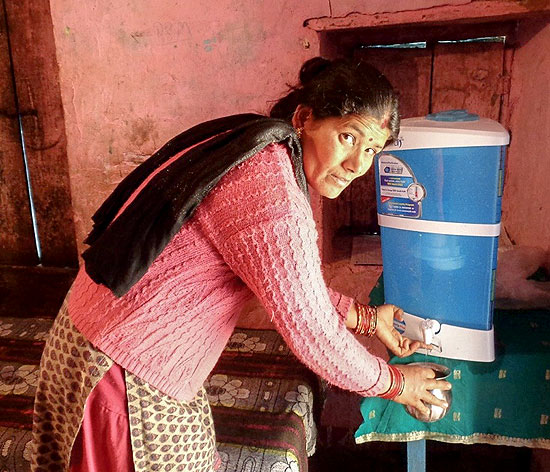
Rekha, a 15-year-old girl from Pokhari village in Uttarakhand, suffered from a severe bout of diarrhea every monsoon for three years. She eventually became so feeble that she could not attend school and had to be hospitalised. Rekha’s mother was worried about her daughter’s health. Her father suffered economically as well, since as a daily wage-earner, his instinct kept him at his daughter’s side instead of at work. The culprit? Contaminated water.
It is a strong belief that water that emerges from mountains is pure. Not so in Uttarakhand, where, because of unplanned development, water had become severely contaminated. As a result, those who drank it could be afflicted by illnesses such as diarrhea, cholera, typhoid, schistosomiasis and more.
Himmotthan, an associate organisation of the Tata Trusts, took up the challenge of addressing this health-threatening problem. The solution was a water purifier. The supply chain was a community product. Trishulii (a producer company supported by Himmotthan) procured Tata Swachh – a purifier that was easy to manage, durable and could deliver results. The Saryu Ghati Self Reliance Cooperative helped in promoting the use of these purifiers in the community.
Himmotthan rolled out a community awareness programme, which included training workshops, exhibitions, rallies and street plays, in order to educate approximately 5,000 households on safe drinking water. Similarly, water and sanitation committees, school management committees, self-help groups, health workers and panchayats were empowered to manage any challenges that might arise at a local level.
As a result of this effort, the situation has changed.
Today, Rekha is doing well, is focused on her studies and she has secured a first division in her matriculation exams.
This story has been taken from the Sir Ratan Tata Trust and Allied Trusts Annual Report 2018-19
